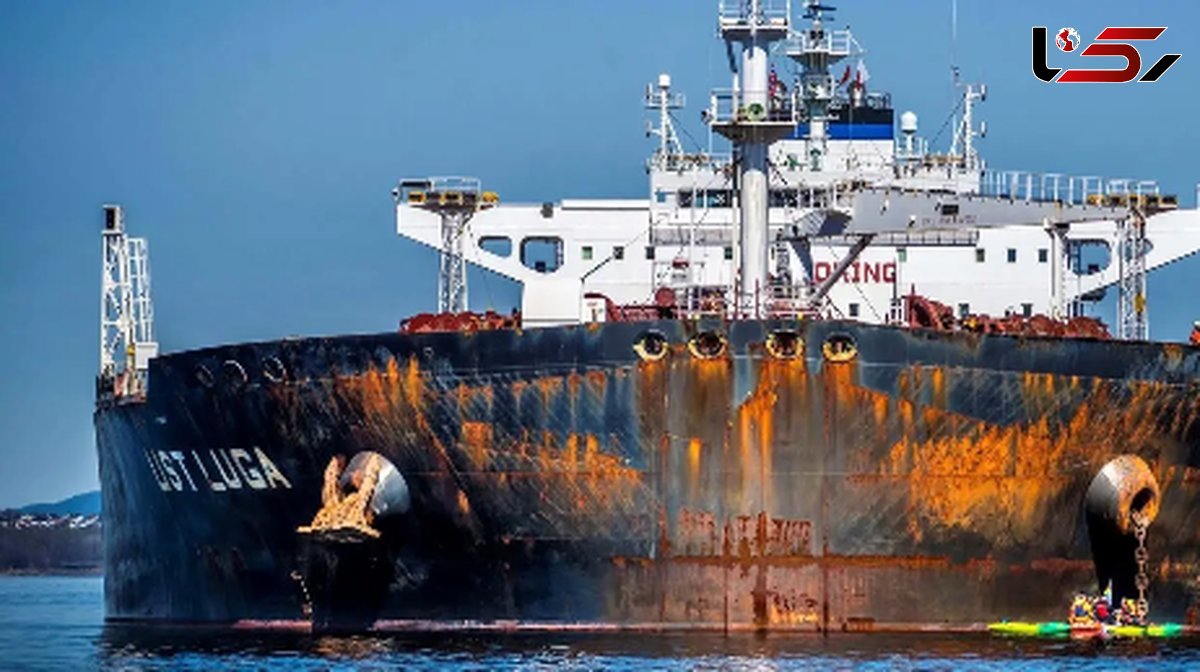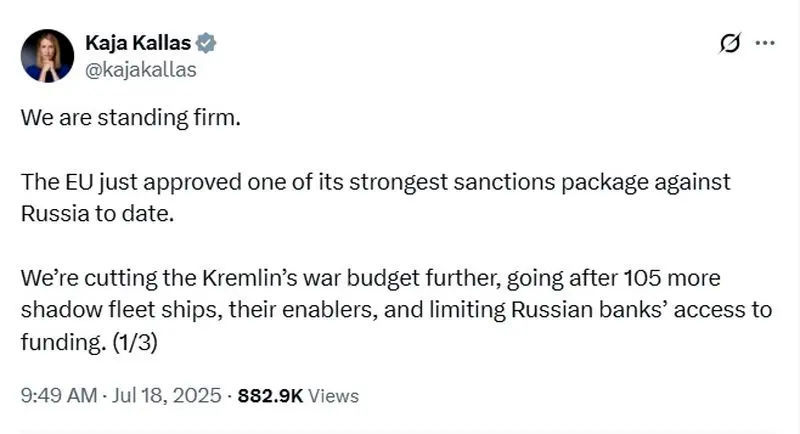How the Shadow Fleet Smuggles Oil—and Why the West Is Targeting It
Rokna Economic Desk– The latest round of sanctions imposed by the United States and Ukraine against Iran and Russia has once again drawn attention to the operations of the so-called “shadow fleet” involved in oil smuggling—a move that forms part of the West’s broader strategy to restrict Tehran and Moscow’s revenue sources.

Recent reports of new sanctions by the United States and Ukraine on Iran and Russia have renewed focus on the shadow fleet employed by both governments to sell oil covertly.
On Sunday, reports surfaced about Ukraine imposing sanctions on Iran and Russia, once again bringing the term “shadow fleet” into media headlines.
Zelensky’s Sanctions Against Russia’s Shadow Fleet
As reported by the Kyiv Independent, on Sunday, Ukrainian President Volodymyr Zelensky signed a decree imposing sanctions on 94 individuals and five legal entities, primarily targeting the captains of ships associated with the so-called "shadow fleet."
According to Zelensky, these sanctions represent the first of three planned sanction packages expected to be implemented in the near future.
Zelensky stated: “These sanctions are being imposed on Russia’s shadow fleet, and we will coordinate all these packages with our partners to ensure the pressure is effective.”
The Kyiv Independent further explained that Russia’s shadow fleet refers to aging, often uninsured tankers deployed by Moscow not only to circumvent sanctions but also for certain espionage activities and other strategic objectives.
The Largest U.S. Sanctions Package Since 2018
However, the sanctions against Iran and Russia’s shadow fleet extend beyond Ukraine’s efforts. Last Wednesday, the U.S. Department of the Treasury imposed new sanctions on over 100 individuals, companies, and ocean-going vessels linked to Iran—described as the largest sanctions package against Iran since 2018.
These newly announced sanctions targeted more than 50 ships, which the U.S. Treasury described as part of the “vast empire of tankers and container vessels controlled by Mohammad Hossein Shamkhani,” son of Ali Shamkhani.
According to the U.S. Treasury’s statement: “This transportation network delivers Iranian and Russian petroleum and other products to buyers across the globe, generating tens of billions of dollars in profits.” The department further described the sanctions package as “the most significant action” ever taken against an Iranian family network.
Following the announcement, Scott Bessent, the U.S. Secretary of the Treasury, asserted: “The Shamkhani shipping empire highlights how the Iranian regime’s elites leverage their official positions to accumulate vast wealth and finance the regime’s dangerous conduct.” He added: “These sanctions, targeting 115 individuals, entities, and vessels, are the largest to date since the Trump administration’s maximum pressure campaign against Iran.”
European Union Sanctions Against Iran and Russia’s Shadow Fleet
On 18 July 2025, members of the European Union approved their 18th sanctions package against Russia over what they termed its aggression against Ukraine.
Kaja Kallas, the EU’s High Representative for Foreign Affairs, wrote on social media platform X: “The European Union has approved one of the strongest sanctions packages against Russia to date. We are further reducing the Kremlin’s war budget and pursuing 105 more shadow fleet vessels, their enablers, and restricting Russian banks’ access to financial resources.”

Additionally, on 21 July, Bloomberg News reported that the European Union had sanctioned Hossein Shamkhani, the son of Ali Shamkhani, for his role in Russian oil trade and for being described as a “central figure” in Russia’s shadow fleet operations.
The EU also sanctioned his companies—Admiral Group and Milavous Group Ltd, both headquartered in Dubai.
Bloomberg added that Hossein Shamkhani is considered a major Iranian oil trader, and the EU sanctions were part of its latest measures targeting Russia over the war in Ukraine. EU officials claimed that Hossein Shamkhani, referred to by foreign media as “a powerful figure in Iran’s oil industry,” played a key role in assisting Russia in oil sales despite intense international sanctions.
He is the CEO of Admiral Shipping and a senior executive at Milavous Group Ltd. While his economic activities and ties to major shipping companies were previously noted, over the past year, reports of his involvement in global energy markets have become increasingly prominent.
U.S. Think Tank: Iran’s Decades of Sanctions-Evasion Experience Transferred to Russia
Meanwhile, a U.S. think tank recently published a report detailing the transfer of Iran’s expertise in sanctions evasion and oil transfer tactics to Russia. The Robert Lansing Institute released a report last Thursday titled “U.S. Sanctions on the Russian and Iranian Shadow Fleet: Strategic Implications and Challenges.”
The report noted that by mid-2025, the United States expanded its sanctions regime to specifically target the “shadow fleet”—a network of vessels clandestinely employed to bypass sanctions and transport embargoed oil and gas from Russia and Iran. This move marks a significant escalation in Washington’s efforts to curb illicit hydrocarbon exports that have become vital lifelines for both sanctioned nations.
These new measures specifically target the maritime core of the Tehran-Moscow alliance, reflecting deep concern over the economic and geopolitical consequences of the shadow fleet’s operations.
The Shadow Fleet’s Role in Russia’s Sanctions-Evasion Strategy
According to the think tank’s report, following Russia’s full-scale invasion of Ukraine in 2022, Western sanctions significantly curtailed Moscow’s access to global markets. In response, Russia began deploying tankers that were either unregistered, falsely flagged, or ambiguously owned. These tankers were used to export oil to countries such as China, India, and Turkey.
Thus, the shadow fleet became essential to Russia’s wartime revenue generation—particularly after the G7 imposed a price cap on Russian oil.
The report further stated that Iran’s decades-long experience in evading sanctions, both operationally and through technical infrastructure—including port access and transfer hubs—was made available to Russia.
The think tank highlighted the following Iranian tactics used to circumvent sanctions since the revolution:
-
Frequent flag switching of vessels
-
“Ghost ships” turning off AIS (Automatic Identification System)
-
Use of shell companies in Malaysia, the UAE, and China
-
Ship-to-ship transfers near Singapore, Oman, and the Strait of Hormuz
The report also stated that Iran has successfully sold oil covertly to China and India using intermediaries and re-labelling the cargo as originating from other countries.
Why Is Russia Relying on Iranian Vessels and Infrastructure?
According to the Robert Lansing Institute, Russia is increasingly dependent on Iran’s shipping assets for the following reasons:
-
Pre-existing expertise: Iran has long managed illicit maritime transport under U.S. sanctions, providing Russia with a ready-made template.
-
Accessible ship registration and flags: Many Iranian-controlled ships operate under third-country flags such as Panama and the Marshall Islands, allowing plausible deniability in case of trouble.
-
Alternative insurance channels: Tehran has established front companies in Asia and the Middle East to insure tankers outside Western maritime insurance systems.
-
Geopolitical alignment: The Iran-Russia axis sees maritime cooperation as a means to counter Western naval dominance.
Send Comments